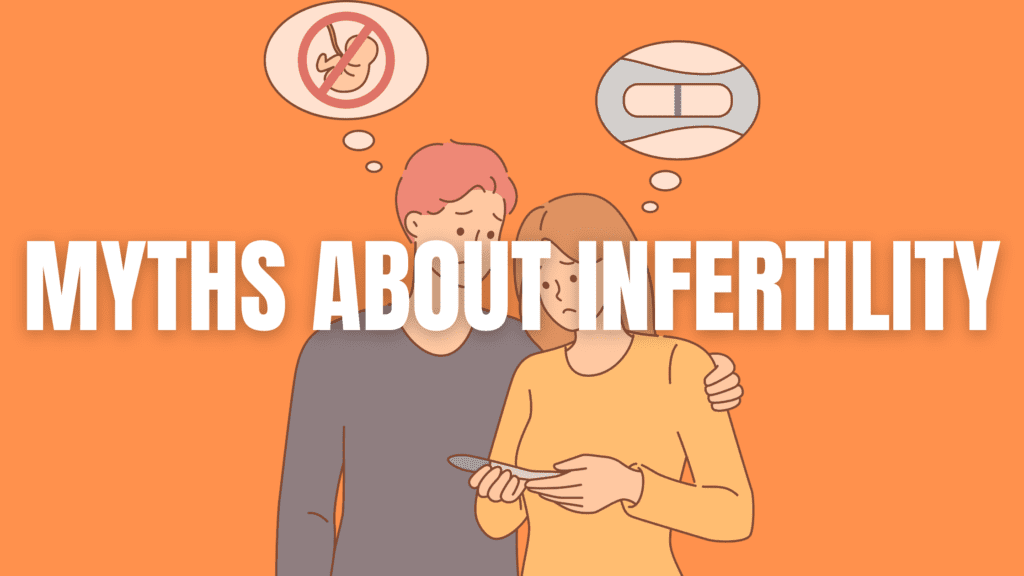Infertility is one of the most challenging journeys a person or couple can go through. It’s an emotional rollercoaster filled with hope, heartbreak, and resilience. But along with the struggle, there are countless myths about infertility that make the journey even harder. These myths create unnecessary guilt, shame, and confusion.
If you or someone you love is facing infertility, let’s clear the air and break down the biggest myths – with kindness, truth, and hope.
Myth 1: Infertility Is Always the Woman’s Fault
The Truth: Infertility is not just a “woman’s issue.” In reality, infertility affects both men and women equally. According to medical research, about 30% of infertility cases are due to male factors, 30% to female factors, and 40% to a combination or unknown causes.
No one should carry the blame alone. Infertility is a shared challenge, and both partners should support each other with love and patience.
Myth 2: Just Relax, and It Will Happen
The Truth: If only it were that simple! Infertility is a medical condition, not just a state of mind. While stress can affect overall health, it is NOT the root cause of infertility. Telling someone to “just relax” can make them feel like they are responsible for their struggle, which isn’t fair or true.
Instead of saying this, offer support. A simple “I’m here for you” goes a long way.
Myth 3: If You Already Have a Child, You Can’t Be Infertile
The Truth: Secondary infertility (difficulty conceiving after having a child) is very real and just as painful. Many parents who dream of expanding their families struggle with feelings of confusion, guilt, and isolation. Just because pregnancy happened once doesn’t mean it will happen again easily.
If you know someone facing secondary infertility, remind them they are not alone.
Myth 4: Age Doesn’t Matter That Much
The Truth: Age plays a significant role in fertility for both men and women. Women are born with all the eggs they will ever have, and as they age, both the quantity and quality of eggs decrease. By the time a woman reaches her mid-30s, fertility begins to decline more rapidly.
For men, sperm quality can also decline with age, although the impact is generally less dramatic.
That said, modern medicine has options! Fertility treatments, egg freezing, and other medical advances can help.
Myth 5: IVF Always Works on the First Try
The Truth: In-vitro fertilization (IVF) is an incredible medical advancement, but it’s not a guaranteed success. Many people need multiple cycles before they conceive, and for some, it may not work at all. Success rates depend on many factors, including age, health conditions, and the quality of the eggs and sperm.
If someone you know is going through IVF, they need love and understanding, not assumptions.
Myth 6: Lifestyle Choices Are Always to Blame
The Truth: While a healthy lifestyle can support fertility, many causes of infertility are completely out of a person’s control. Conditions like polycystic ovary syndrome (PCOS), endometriosis, low sperm count, and genetic factors cannot simply be “fixed” by eating better or exercising more.
Encouraging a healthy lifestyle is great, but blaming someone for their infertility is never okay.
Myth 7: Adoption Is the Easy Solution
The Truth: Adoption is a beautiful choice, but it’s not an “easy” alternative to having a biological child. The adoption process can be long, expensive, and emotionally challenging. Every person’s path to parenthood is unique, and adoption is just one of many options.
Telling someone to “just adopt” dismisses their pain and journey. Instead, let them choose what feels right for them.
You Are Not Alone
Infertility can be isolating, but you are not alone. Whether you’re facing this battle yourself or supporting someone who is, remember that infertility is not a personal failure. It is a medical condition that deserves understanding, support, and proper treatment.
The best thing we can do is break the silence, debunk the myths about infertility, and offer kindness. Because in the end, hope, love, and compassion matter the most.
If you or someone you know is struggling with infertility, reach out to a trusted doctor, counselor, or support group. There is help. There is hope. And there is always a way forward. 💙

